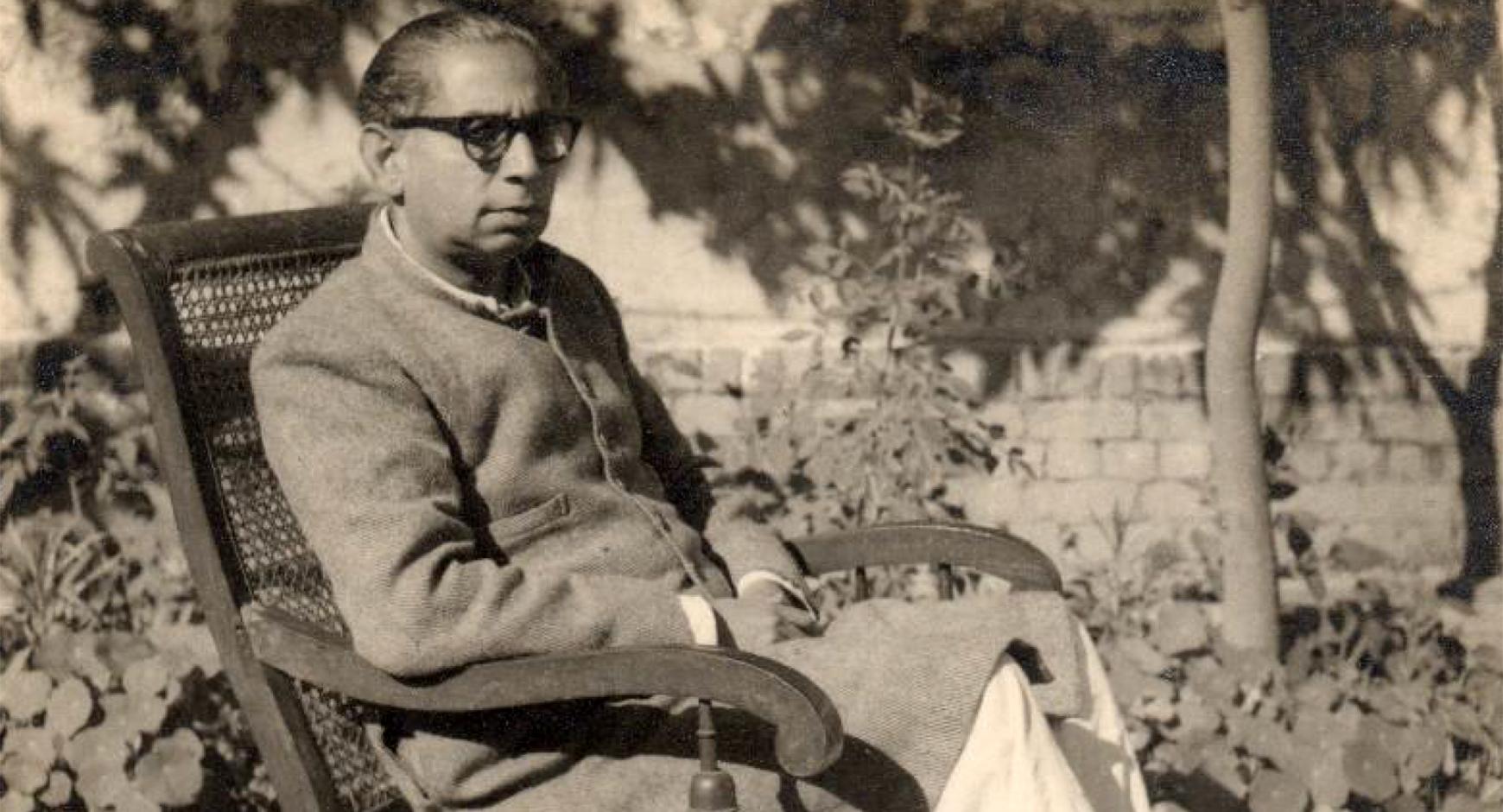
The comprehensive works of influential Urdu writer, social critic and political activist Sajjad Zaheer are now broadly accessible for scholarship and study thanks to a partnership between The University of Texas at Austin and Ambedkar University Delhi (AUD), with endorsement from the Indian writer’s estate.
The Sajjad Zaheer Digital Archive, a portal to the private collection of Syed Sajjad Zaheer (1905-1973), functions as a searchable finding aid for the materials preserved in the digital collections of the Center for Research Libraries and the physical materials at AUD.
The archive contains a rich collection of letters, manuscripts and photographs, and includes resources related to contemporaneous writers (including the Progressive Writers Association and the Afro-Asian Writers Association), political activities (like the Rawalpindi Conspiracy and the Communist Party of India) and to the Zaheer family, notably his wife, Razia Sajjad Zaheer, herself a distinguished Urdu author. Materials in the Sajjad Zaheer Digital Archive are variously presented in English, Urdu and/or Hindi.
Sajjad Zaheer was born near Lucknow in Northern India in 1905, the son of a prominent notable judge and Chief Justice of the Lucknow Chief Court. After completing his studies in politics and law at the University of Lucknow, Zaheer enrolled at the University of Oxford in 1927 to study law. During his eight years abroad, Zaheer evolved in his opposition to British Imperialism in his home country and helped establish the Indian Progressive Writers' Association in London. He later organized the first conference of the Progressive Writers’ Association in Lucknow in 1936.
After returning to India, Zaheer became involved in politics, becoming Uttar Pradesh state secretary of the Communist Party of India (CPI) as well as a member of the working committee of the Congress in 1936. He was jailed for two years during the World War II for opposing India’s participation in it.
Following the Partition of India of 1947, Sajjad Zaheer co-founded the Communist Party of Pakistan and was appointed Secretary General. In 1951, he was arrested in the Rawalpindi Conspiracy Case along with Faiz Ahmed Faiz. He remained in jail for four years and upon release was given Indian citizenship by Jawaharlal Nehru. While in India he continued to work in cultural activities organized by the Communist Party of India. Zaheer died in 1973.
Zaheer’s writings included novels, collections of short stories, poetry, criticism, non-fiction and translations, as well as critical political writings. He also served as the editor and contributor to a number of papers and magazines throughout his career including Bharat, Chingari, Qaumi Jung, Naya Zamana, Awami Daur and Hayat.
“Our hope is that these newly available resources will inform nuanced research, will inspire teaching, and will advance collaborative scholarship across national borders,” says Mary Rader, head of the Fine Arts, Humanities and Global Studies Engagement Team. “The intention all along—now realized—was to make these materials openly and freely available thereby exposing the work and life of Sajjad Zaheer to new audiences.”
This project was supported by AUD’s Centre for Community Knowledge, the South Asia Institute at The University of Texas at Austin and the South Asia Materials Project (SAMP) at the Center for Research Libraries.
Help Complete the Archive
Scholars and individuals familiar with Sajjad Zaheer and/or literary and political movements of 20th century north India can help identifying the people, places and dates in the archive’s photographs by visiting the parallel, crowd-sourced Sajjad Zaheer Photo Archive project to browse through photos from the archive, which can be accessed and accepts submissions in English, Hindi or Urdu.


